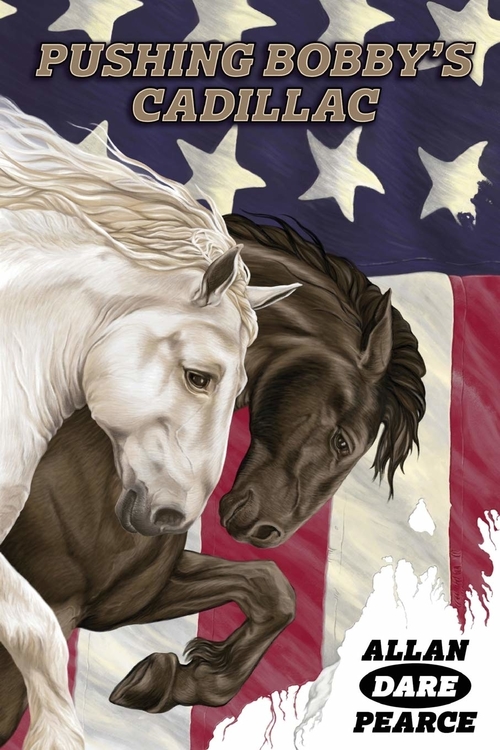
Rich in historical detail and thick with visceral emotion, Pushing Bobby’s Cadillac by Allan Dare Pearce is a bold and tangled novel about racial injustice, finding one’s purpose, and the lengths that power will go to remain unchallenged.
Aiken Day is far from perfect, haunted by his own violent past, but the death of Paris, his civil rights activist wife, sends him careening into the dangerous world of political subterfuge, racial violence, and country-spanning conspiracy. Bouncing smoothly between Detroit, Florida, New Hampshire, Ontario, and other oft-overlooked pockets of the continent, this one-day-per-chapter novel sets itself a tall task with a sprawling cast of characters and a powder keg of context: the United States of America in 1968.
The investigatory and FBI elements of this slow suspenseful tale are some of the highlights, as are the behind-the-scenes imaginings of life on the campaign trail. Seemingly in another world, but on the same side of a larger battlefield, the book follows Bobby Kennedy as he makes his bid for the American presidency, six months before his assassination. This in-depth peek at political wrangling – and topics like voter suppression – gives the novel a timely appeal, despite the generations that lie between then and now.
Historical figures blend with fictional characters, creating a swirling story where the lines of reality begin to blur. There is also a sense of sad desperation to these intermingled storylines – a weight laid by both the historical context and the intimate style of narration. At times gritty and unabashedly honest, the novel touches on too-often-taboo themes of sex work, poverty, mental health, and vulnerable populations across the western world. Vacillating between macrocosmic issues and brilliantly nuanced individual lives, this is a well-rounded, deeply pervasive accounting of America’s past.
There are countless passages of extended metaphor and descriptive plunges that demonstrate Pearce’s mastery of language and storytelling strength. The dialogue between all the characters is organic and impactful, layered with meaning, while the wide-ranging colloquial speech in nearly every scene is meticulous and immersive. Between the rigid yet rough-around-the-edges conversations between police officers to the delicate deflections of floundering parents to curious children, the author understands how to bring a challenging exchange to life.
Some sections and events do feel rushed, while simultaneously tangential, as though this novel was once cut into different pieces and rearranged, with some vignettes consequently being slotted into place. The author employs the liberal use of internal monologuing, which sometimes makes the narration heavy-handed, as though assuming the readers will be unable to read between the lines. However, this clumsiness is the exception, not the rule, and for the most part, the language is powerful, with few wasted words, even in the most circuitous stretches of imagery.
Epic in its scope and ambition, Pushing Bobby’s Cadillac is an example of prose that can redefine perspective, not only changing our view of the past, but giving readers a more righteous example for the future, in a stirring and illuminating work of historical fiction.
Book Links
STAR RATING
Design
Content
Editing
Get an Editorial Review | Get Amazon Sales & Reviews | Get Edited | Get Beta Readers | Enter the SPR Book Awards | Other Marketing Services























Leave A Comment